Key takeaways
- Washington warned against political factions and permanent foreign alliances, emphasizing their potential to undermine national unity and independence.
- His emphasis on morality and ethical values as the foundation of governance highlights the importance of shared principles for a thriving society.
- The context of Washington’s time illustrates the fragile state of democracy and the urgency of his advice for maintaining unity amidst external pressures.
- Reflecting on Washington’s message today encourages a focus on the common good over party loyalty and principles over political rivalry.
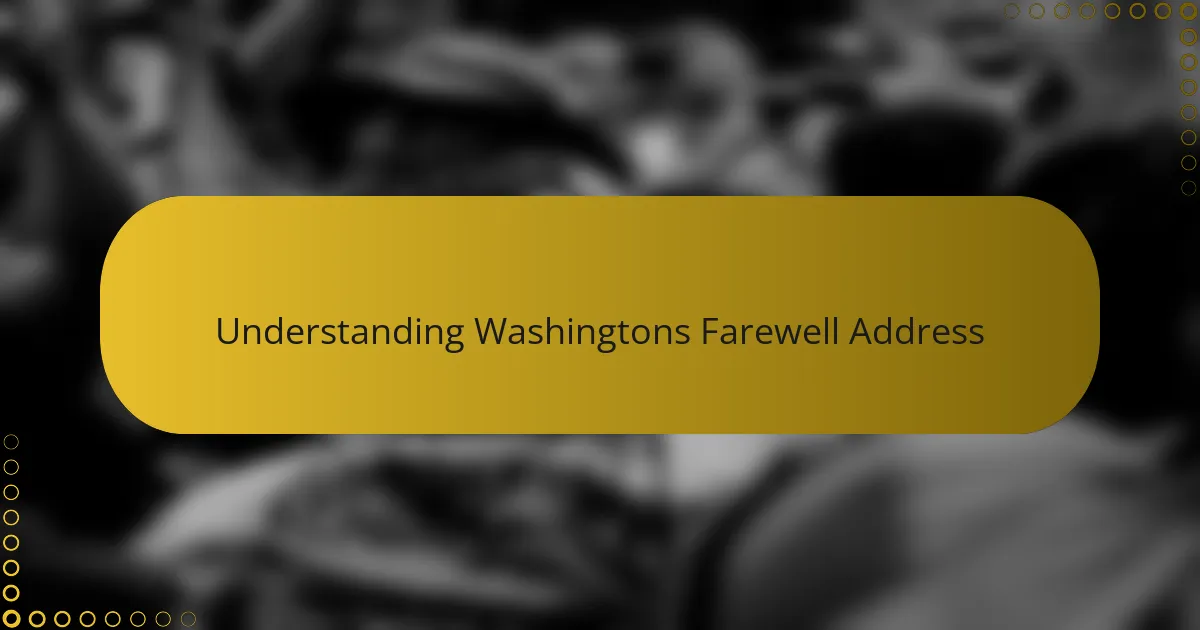
Understanding Washingtons Farewell Address
Washington’s Farewell Address always strikes me as remarkably timeless. When he warned against permanent alliances and political parties, I wondered if he foresaw the deep divisions we experience today. It’s like he was trying to guide a young nation, reminding us that unity and independence would be crucial for survival.
As I dig deeper into the address, I feel Washington’s genuine concern for the future. His words reflect a mix of hope and caution, reminding me of a parent giving firm advice not out of fear, but out of love. Have you ever received guidance that seemed strict at first but made so much sense later? That’s how I see his message.
What really grabs me is how relevant his warnings about foreign entanglements still are. It challenges me to think, how much of our current foreign policy reflects or ignores those early lessons? Washington’s address isn’t just history; it’s a mirror asking us to reflect on our choices even today.
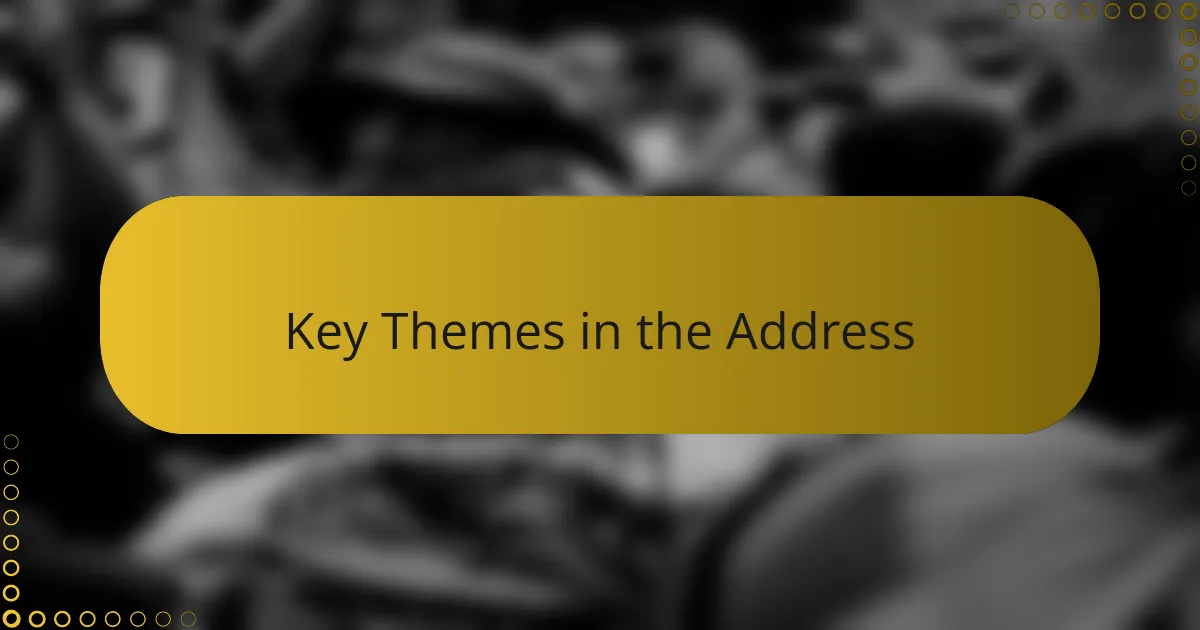
Key Themes in the Address
Washington’s emphasis on avoiding political factions really resonates with me. Have you ever seen a team fall apart because people put their own interests first? That’s exactly what he feared for the young republic. His call for unity feels like a plea to hold onto the common good amid growing division.
Another striking theme is his caution about permanent foreign alliances. I often wonder if today’s global entanglements would have looked different had we heeded his advice. It’s like he was urging us to stay independent in both thought and action, which feels all the more urgent given current international complexities.
What touches me most is his focus on morality and religion as the foundation for good government. Do you think a nation can thrive without a shared ethical compass? Washington’s words suggest that beyond laws and policies, the character of the people shapes the country’s future—a reminder that still holds weight in our political conversations.
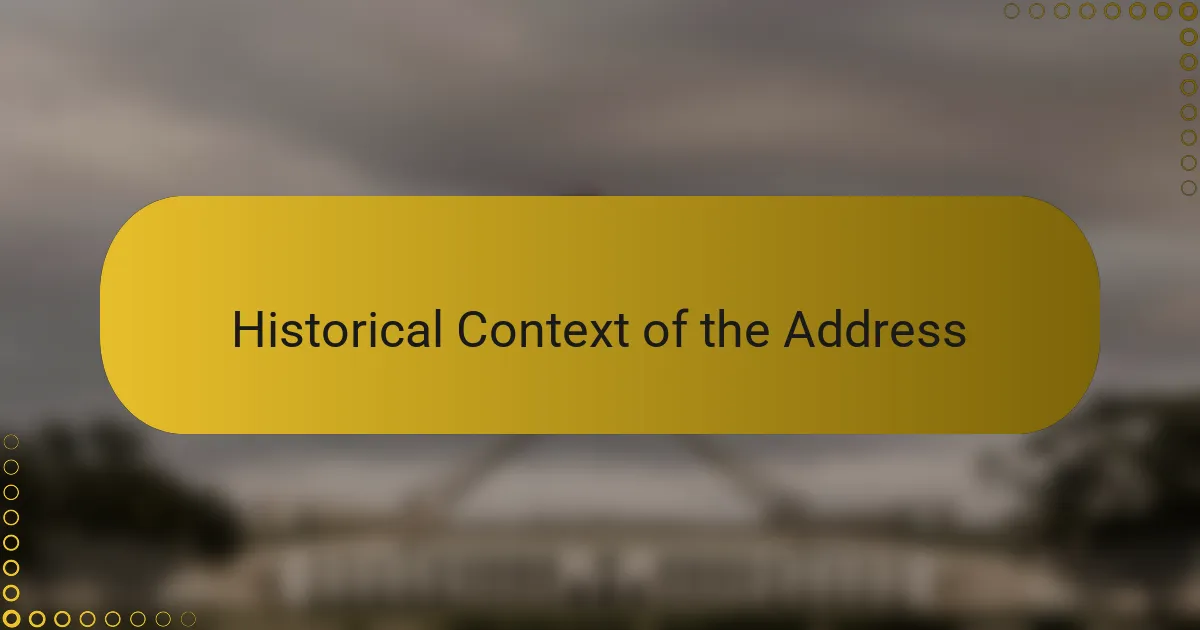
Historical Context of the Address
When I think about the time Washington gave his Farewell Address, I picture a nation fresh out of revolution, still trying to find its footing. It was 1796, and the United States was like a teenager stepping into adulthood—full of hope but also vulnerable to mistakes. Knowing this, his warnings feel less like distant history and more like a seasoned leader genuinely trying to protect a fragile experiment in democracy.
It fascinates me that Washington spoke in a time before political parties had fully taken shape, yet he already sensed how dangerous factionalism could become. Imagine trying to keep a group together when everyone starts pulling in different directions—that was the reality he faced. This context helps me understand why he was so serious about national unity; it wasn’t just political advice but a survival strategy.
What really hits me is considering how isolated America was back then. Foreign powers were circling, and alliances weren’t just diplomatic—they could pull the young country into wars it wasn’t ready for. Washington’s caution about permanent alliances wasn’t just paranoia; it was a practical concern rooted in the real dangers of that era. Do you see how history’s weight carries through to today’s foreign policy debates? I certainly do.
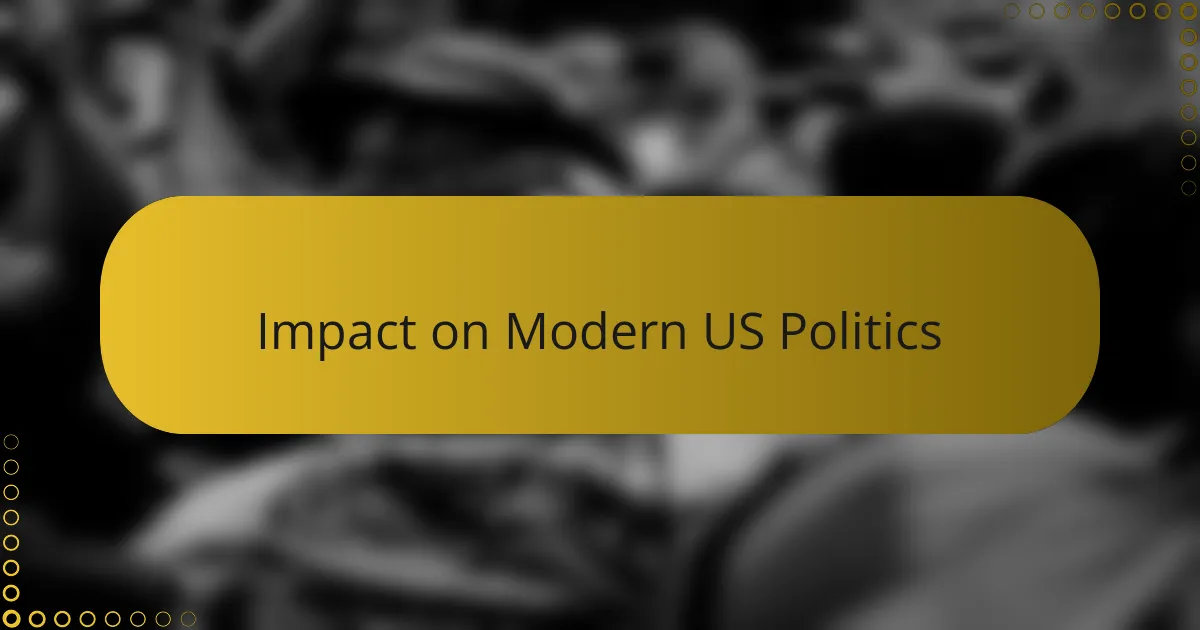
Impact on Modern US Politics
When I look at modern US politics through the lens of Washington’s Farewell Address, I can’t help but notice how his warnings about political factions feel almost prophetic. Have you ever felt frustrated watching partisan gridlock stall progress? That’s exactly what he feared, a nation divided by party loyalty rather than united by common purpose.
It’s also striking to see how his caution against permanent foreign alliances echoes today amid shifting global commitments. I often wonder if policymakers pause to consider whether those alliances serve our long-term independence or trap us in endless conflicts. Washington’s advice challenges me to think about how much foreign policy truly honors our national interests versus short-term alliances.
What really resonates is his underlying call for morality and unity as the political foundation. In a time when trust in government feels precarious, I find myself asking—can we rebuild our political culture on those enduring values Washington championed? His Farewell Address isn’t just old wisdom; it’s an invitation to reflect on what kind of political community we want to be now.
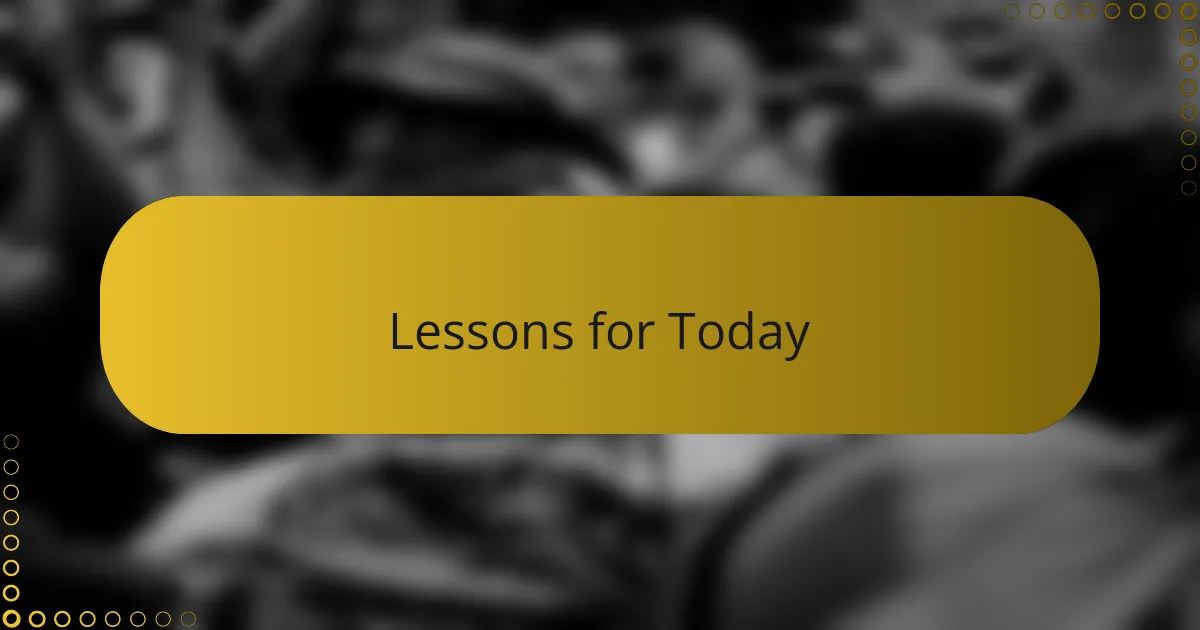
Lessons for Today
Thinking about Washington’s advice today, I’m struck by how relevant his warning against political divisions remains. Have you ever noticed how easy it is for disagreements to spiral into deep divides? His call for unity feels like a reminder that we must consciously prioritize the common good over party loyalty if we want progress.
I also find his caution on foreign alliances particularly compelling. In a world so interconnected, it’s tempting to rush into partnerships, but I wonder—are all our alliances truly benefiting us long-term? Washington’s words make me reflect on the importance of balancing engagement with independence, a lesson that feels urgent amid today’s complex global landscape.
Lastly, his emphasis on morality as the bedrock of governance resonates deeply. Can a nation really thrive if we lose sight of shared ethics? From my experience, governments that foster trust through principled leadership create stronger, more resilient communities—a truth Washington seemed to understand well beyond his time.
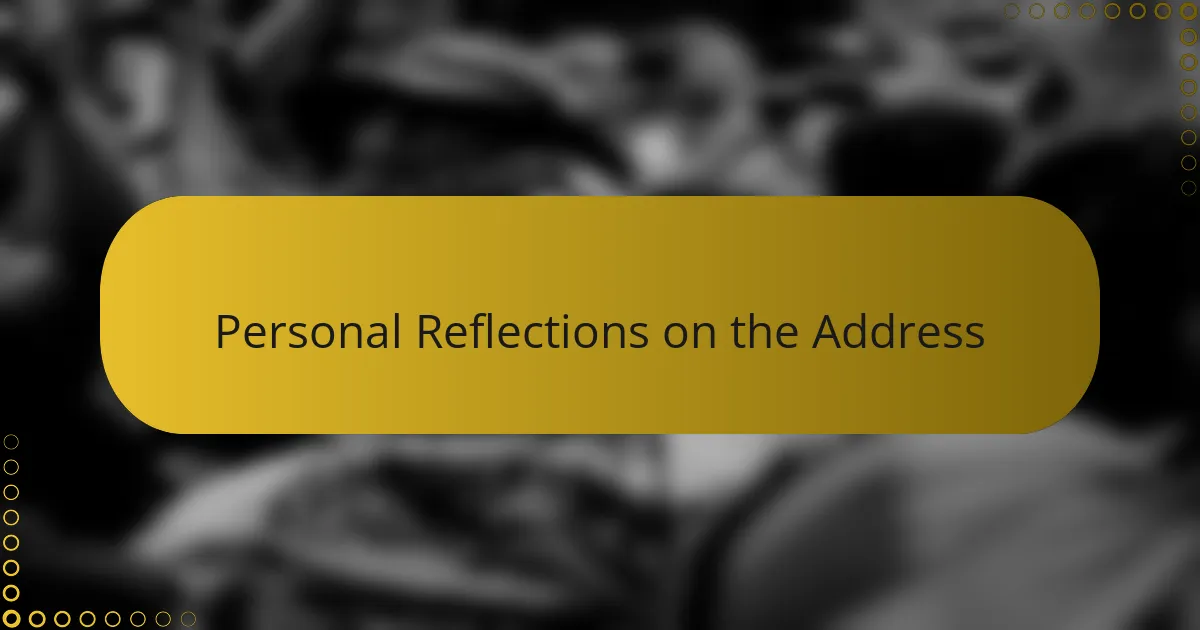
Personal Reflections on the Address
Reading Washington’s Farewell Address made me think about times when I’ve witnessed divisions tearing groups apart—whether at work or in communities. It reminded me how fragile unity can be and how important it is to nurture shared goals instead of letting differences widen the gaps. Have you ever felt that sense of loss when collaboration breaks down? That feeling is exactly what Washington seemed so worried about.
I also reflect on the way Washington’s tone carries both warmth and warning. It’s like he’s speaking with the concern of someone who’s seen challenges and wants to steer us clear of repeating mistakes. That balance between hope and caution feels personal to me, as if he’s inviting us to be better custodians of our country’s future. Doesn’t it make you wonder how his message might have changed if he could see today’s political climate?
What strikes me most is how these words from over two centuries ago still pull at my sense of responsibility. Washington wasn’t just handing down rules; he was asking his fellow citizens to pause and reflect on what really matters beyond politics and power. It challenges me to ask myself: am I living up to that ideal of putting the nation’s well-being above all else? I find that question both humbling and motivating.
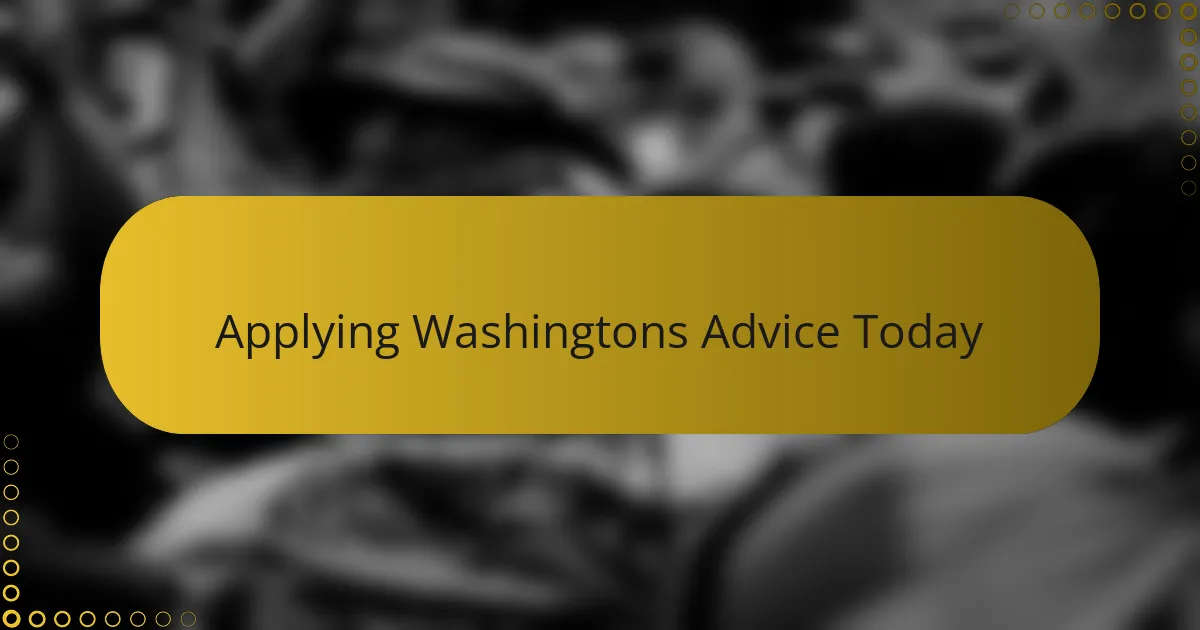
Applying Washingtons Advice Today
Applying Washington’s advice today pushes me to think about how easily we get caught up in party rivalries that seem to drown out the bigger picture. Have you noticed how sometimes political debates feel less about solving problems and more about scoring points? Washington’s call to rise above factions reminds me that without unity, progress stalls, and I wonder how we can bring that spirit back into our political conversations.
His caution against permanent foreign alliances still feels like a prudent warning. In an age where global commitments can drag us into endless conflicts, I find myself asking: Are we preserving our independence or losing it in pursuit of short-term gains? Washington’s advice encourages a kind of careful diplomacy that balances engagement with maintaining our freedom to choose our own path.
What really resonates with me is his belief that morality and character form the foundation of a healthy government. Reflecting on current times, I sometimes question whether our leaders and citizens alike are holding enough to shared ethical values. Can we rekindle that sense of common purpose through principled leadership? From my experience, when trust and integrity matter, a nation’s spirit endures—and that’s exactly what Washington seemed to envision for America’s future.